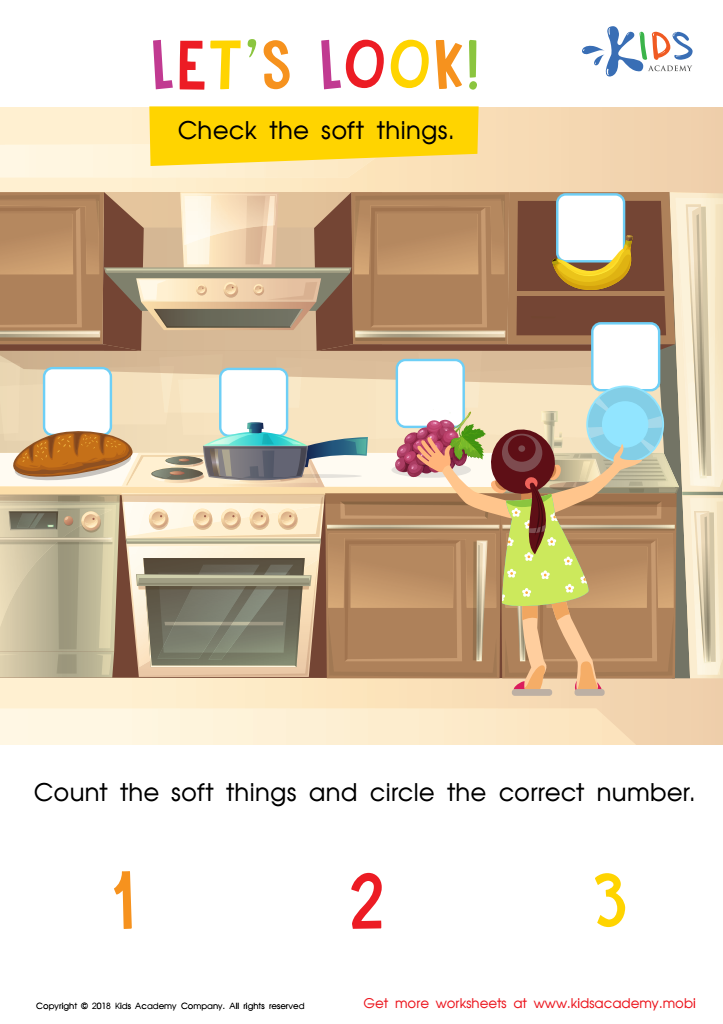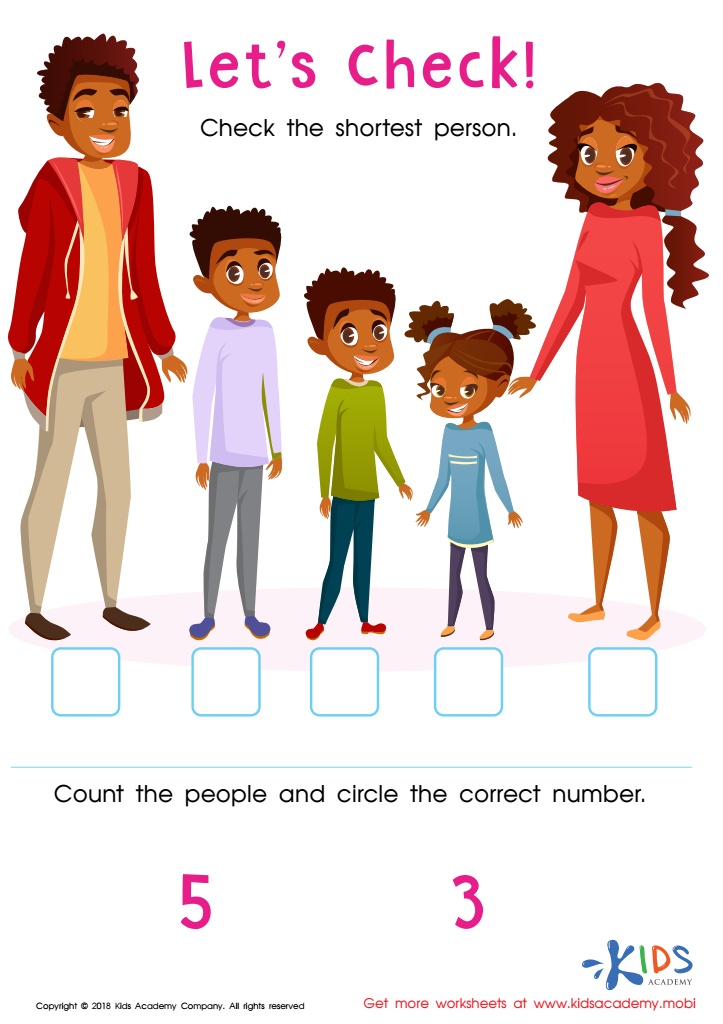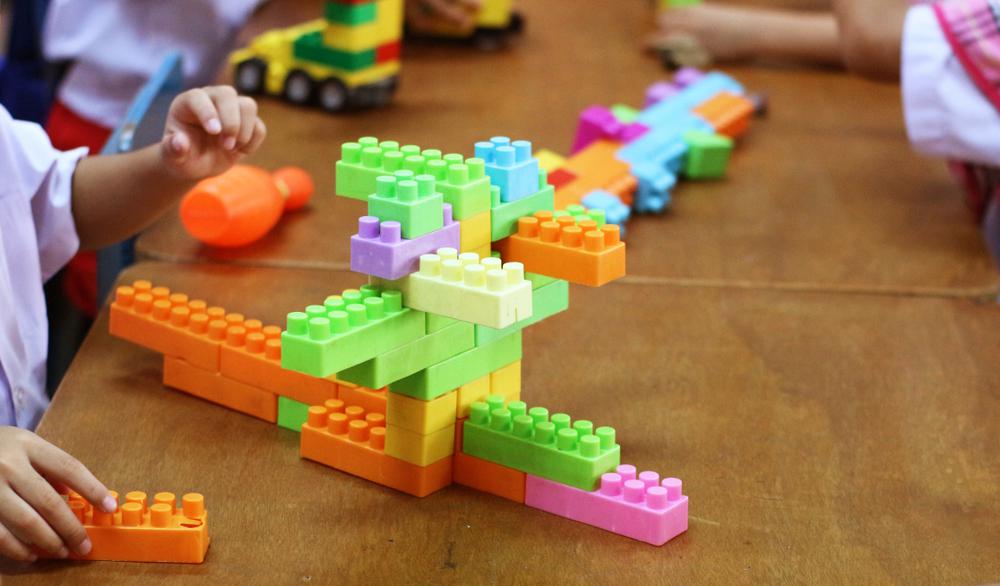Counting skills Normal World Around Us Worksheets for Ages 5-9
3 filtered results
-
From - To
Introducing our "Counting Skills Normal World Around Us Worksheets for Ages 5-9"! Designed for young learners, these engaging worksheets blend fun activities with real-world scenarios to enhance counting skills. Your child will find joy in counting objects they encounter daily, from animals and plants to vehicles and toys, fostering a practical understanding of numbers. Our worksheets are tailored to solidify foundational math skills and boost confidence, making learning an enjoyable adventure. Perfect for kids aged 5-9, these resources support classroom lessons and home practice. Encourage your child to explore and excel with our interactive counting worksheets!


African Wildlife: Giraffe Worksheet


Let's Look! Assessment Worksheet


Let's Check! Assessment Worksheet
Counting skills are foundational to mathematical understanding and play a critical role in a child's cognitive development. For children aged 5-9, the ability to count isn't merely about reciting numbers; it intersects with various aspects of daily life and learning. First, counting skills enhance a child's problem-solving abilities by helping them to quantify and organize information, whether it's in playing games, dividing snacks, or budgeting time for activities. This kind of logical thinking is central to their overall intellectual growth.
Additionally, counting is often the earliest introduction children have to the concept of patterns and sequences, which are essential for later math topics such as addition, subtraction, multiplication, and division. Mastering counting supports their confidence in handling more complex numerical concepts and sets a strong foundation for academic success in mathematics and science.
In the regular world around us, children are constantly exposed to situations that require counting—like determining the number of apples in a basket, tallying their toys, or measuring ingredients for a simple recipe. Proficiency in counting can transform these everyday activities into learning opportunities, fostering a practical understanding of math in a real-world context. By nurturing counting skills, parents and teachers contribute significantly to children’s lifelong numerical literacy and their ability to interact meaningfully with their environment.
 Assign to My Students
Assign to My Students
















